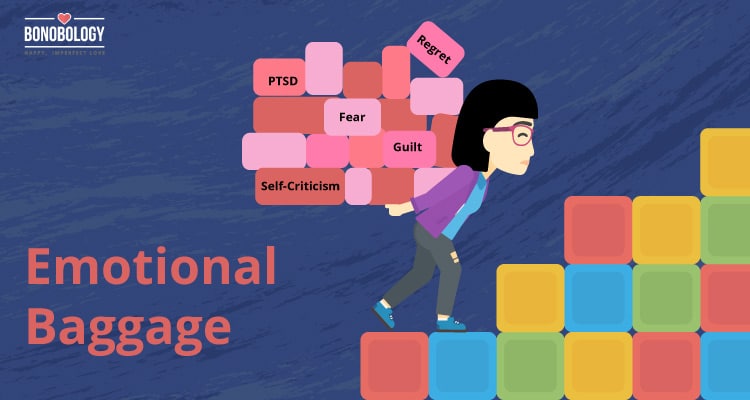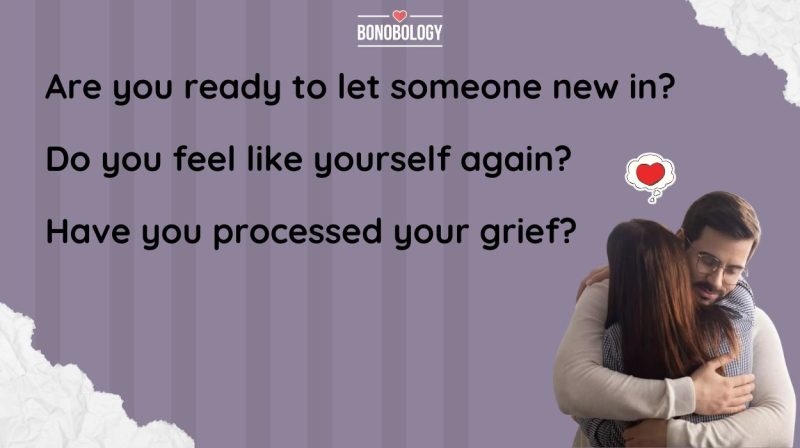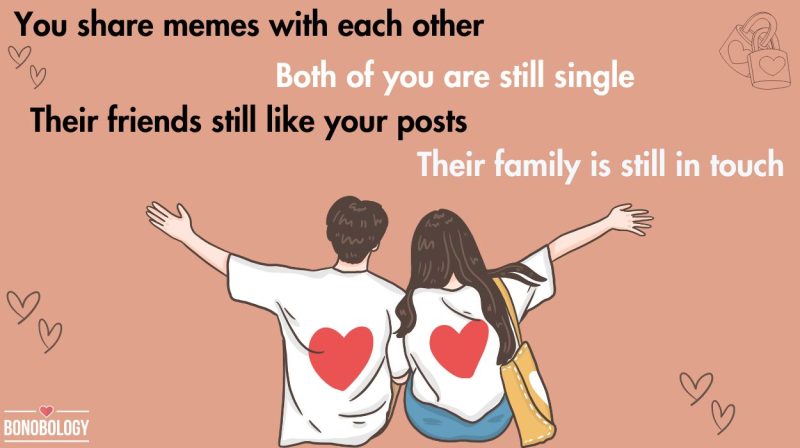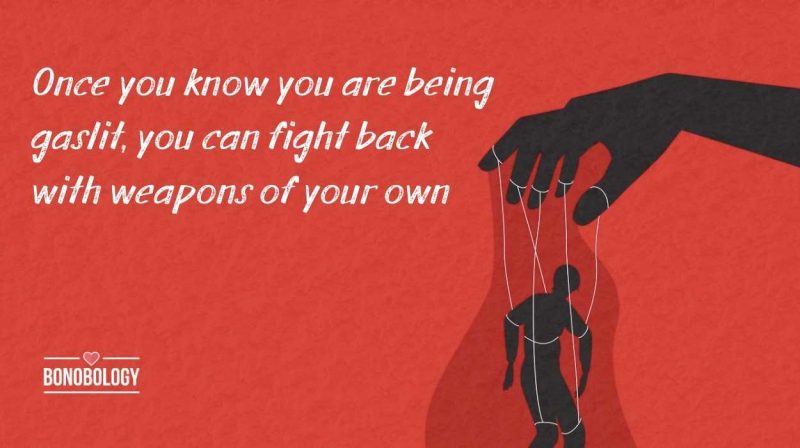It’s impossible to go through life with experience hurt, pain, emotional trauma, and wounds. We all have our brushes with these, while we’re able to move past some of these traumatic events, others leave a deep scar on our psyche. These scars of past experiences that begin to govern how we handle our present and future are known as emotional baggage. It implies that one is dealing with residual emotional issues and carrying a lot of hurt, pain, sadness, regret, anger, or guilt within themselves.
If left unresolved, these pent-up emotional issues can be detrimental to your physical, emotional, and mental health as well as your most intimate relationships. For example, if you felt abandoned by your primary caregivers in your childhood or a past romantic partner ended their relationship with you without extending you the courtesy of a proper conversation, let alone closure, the fear of abandonment and a sense of insecurity can become so deeply ingrained that you it begins to impact the way you handle your future relationships.
The complex emotional baggage psychology is one of the few factors that can hamper our ability to lead truly fulfilling lives because instead of embracing positive emotions and experiences, we spend a better part of our lives warding off perceived threats. Needless to say, that’s not a pleasant place to be in. But the question is: can you do something about it?
Turns out, you can. In this article, psychotherapist Gopa Khan (Masters in Counseling Psychology, M.Ed), who specializes in marriage and family counseling, writes about the right approach to letting go of emotional baggage while also touching upon its examples, types, causes, and signs.
What Is Emotional Baggage?
Table of Contents
Before we get into the intricacies of how painful memories of the past can shape your present and future, let’s take a moment to get the basics right. So, what is emotional baggage? Simply put, it is a combination of insecurities and inhibitions emerging from our past experiences. The triggers for it can be our upbringing, family history, or stressful or traumatic events in past personal relationships involving romantic partners, friends, or even coworkers.
When something causes us deep pain, it can trigger our fight or flight response, and our defense mechanism forever alters our emotional habits in the process. That’s what the emotional baggage psychology boils down to, making it hard for us to trust others and sometimes ourselves too, rendering us unsure and indecisive in our relationships.
All of us carry some baggage or residual negative feelings from our past. The intensity may vary from person to person, depending on the kind of traumatic experiences or difficult situations they have dealt with. So, how can tell if the baggage a person has been carrying has been triggering intense feelings that impact the way their behavioral response?
Let’s look at some examples of emotional baggage to understand. A person who has gone through a rough divorce, for instance, will have a high intensity of negative emotions and distress. This will manifest in their interactions with people and reactions to situations. Similarly, a person with childhood trauma owing to toxic parents, may, over the years, develop tools to cope with it.
In this case, the intensity of negative emotions may be less, they may react to people and situations differently. Their issues with childhood trauma may not manifest in their friendships or relationships with coworkers but may come up in their romantic relationships. Either way, both will carry baggage, which defines how they choose to see the world and interact with the people around them.
Related Reading: Is Your Jealous Boyfriend Being Possessive And Controlling?
Types Of Emotional Baggage
While we have broadly addressed the question of what is emotional baggage, it’s imperative to mention that not all baggage is created equal. The impact of some can be so intense that it alters your neural pathways and the way your prefrontal cortex reacts to situations. While, in other cases, it can flow like an undercurrent governing your responses and choices. But it is equally important to address both these types of behavioral responses, or any other that may be a result of your past experiences. To be able to do that, it’s vital to understand the different types of emotional baggage:
1. Post-Traumatic Stress Disorder (PTSD)
Of the different types of emotional baggage, Post-Traumatic Stress Disorder (PTSD) can, by far, be the most debilitating. According to the National Center for PTSD, PTSD is a mental health condition triggered by experiencing or witnessing a life-threatening or traumatic event. The symptoms include flashbacks, invasive thoughts, insomnia or trouble sleeping, nightmares, and severe anxiety. PTSD is most commonly seen in military personnel returning from a war zone but can also affect victims of rape, assault, child abuse, domestic violence, and physical trauma.
Related Reading: How To Deal With A Gaslighting Spouse?
2. Guilt
Guilt can be described as an uncomfortable feeling that stems from having to live with the realization that you have done something wrong or caused harm to another person. Feeling guilty over your past actions can impede your ability of moving forward from the event triggering it, and as a result, all your actions and decisions may come to be defined by that one action.
For instance, if you cheated on a partner in the past, you may carry unresolved cheater’s guilt into your subsequent relationships, which then becomes a determining factor for your behavior patterns with intimate partners.
3. Regret

The experience of regret is different from feeling guilty, although the premise of both these types of emotional baggage is more or less the same. The difference here is that instead of shame, you feel sad about something you may have said, done, or missed out on saying/doing. Regret indicates that you’re living in the past. Over time, you may become hard-wired to view everything in your life through the prism of the things you didn’t get right.
4. Fear
Fear is a legitimate defense mechanism that tells us to steer clear of things that can be potentially harmful to us. However, when fear spirals out of control or becomes irrational, it can become one of the examples of emotional baggage. For example, a person who has been in a nasty car accident may go on to develop a fear of driving. Likewise, if a romantic partner has hurt you deeply in the past, you may develop a fear of commitment because protecting yourself from that pain becomes the primary focus.
5. Self-criticism
If your inner critic is always disapproving of different aspects of your life – your appearance, your life choices, your weight, your work – it’s a sign that you’re carrying a lot of baggage from the past. Self-criticism is a sign of low self-esteem, and people who grapple with it are in need of constant validation and attention from others.
As a result, you may end up being too clingy and insecure in your intimate relationships, which may push your partners away, in turn, emboldening the voice of your inner critic. Unless you find healthy ways of dealing with this and work on rebuilding your self-esteem from the ground up, the old habits and patterns will keep repeating themselves, chipping away at your sense of self, bit by bit.
Related Reading: 15 Signs Of Emotional Neglect In A Marriage
What Causes Emotional Baggage?
Now that we understand the emotional baggage definition and types, let’s take a look at what causes this mental baggage to build up over time. The idea here is not that by identifying the causes, we can protect ourselves from accumulating baggage that bogs us down emotionally. As we go through life, navigating its many ups and downs, it’s inevitable that we’d have some experiences that shake us up or wound us emotionally.
However, by getting to the root cause of that emotional hurt and pain, we can learn which part of our baggage is weighing us down and find ways to work through it and reset our emotional goals and expectations. To that end, here are some life experiences that can a life-altering impact on people:
- Experiencing betrayal: If an intimate partner or loved one betrays you, you may end up developing serious trust issues
- Being tricked by someone: Getting swindled, catfished, or falling prey to a romance scammer can leave you overly protective of yourself and your assets
- Childhood experiences: Our earliest interactions with our primary caregivers deeply impact our worldview. It can be hard to have a life-affirming outlook if you experienced emotional neglect as a child or if your emotional needs weren’t met consistently. This can lead to an insecure attachment style, which is nothing but your emotional baggage from your formative years manifesting in your adult relationships
- Abuse: Abuse of any kind – emotional, physical, sexual – can leave you deeply emotionally scarred. Victims of abuse, be it at the hands of an intimate partner, an acquaintance, or a stranger, is a common trigger for PTSD, and can greatly alter the way to handle and behave in relationships. No matter how healthy or secure your current situation, a part of you is still reliving the experience of abuse, which, then, governs your actions and reactions
- Toxic relationships: A toxic relationship fraught with conflict, manipulation, disagreements, and fights can compound into considerable baggage. If you’ve grown up in a toxic household, these unhealthy habits and patterns get normalized to such an extent that you may find yourself being drawn to toxicity because it is familiar. This continued exposure of toxicity impacts your own behavior patterns in relationships
As a counselor, I see that often this last trigger is the most common cause of emotional baggage. For example, a client with a history of bad serial relationships revealed that he would step into relationships looking for love and attention as he grew up feeling neglected by his parents. Often, we can relate issues in our adult lives to incidents in our childhood or growing up years as they tend to shape our outlook toward people and the world around us.
Related Reading: 11 Warning Signs Of A Toxic Relationship
Signs Of Emotional Baggage In A Relationship
The journey of letting go of emotional baggage, of transitions from a need to always run away from uncomfortable emotions to expressing positive emotions regularly, isn’t an easy one. And definitely not one you can embark on without self-awareness. If you’re still not sure whether your emotional responses are tainted by your past experiences, here are some signs to watch out for:
- Codependency: A codependent relationship is one where one partner becomes so consumed with the idea of taking care of the other that their own identity and sense of self are diminished in the process. If you have that savior instinct or a need to be a martyr in your relationships, it could your baggage at play
- Trust issues: An inability to let your guard down in front of your partner and trouble trusting them also stems from past hurt and painful experiences
- Anger and frustrations: If you tend to lash out when you feel frustrated and are often told you have anger issues, it could be a sign of unresolved trauma
- Paranoia: If even the slightest hint of trouble in your relationship or a fight/argument with your significant other leaves you imagining worst-case scenarios in your mind, it’s a sign you struggle with a fear of abandonment that is rooted in your past
- Controlling behavior: A tendency to be overbearing or controlling in relationships because the prospect of losing control makes you feel vulnerable and scared
- Inconsistent behavior: You have trouble being consistent in your behavior with your partner. You’re swooning over them one day and acting distant and aloof the next. Again, this hot-and-cold behavior is the ultimate defense against getting hurt or having your heartbroken

How To Get Rid Of Emotional Baggage?
It’s clear to see that being trapped in unresolved emotions from the past can hold you back in so many ways. And now that you realize it, you may find yourself at the fork of a good road and a bad road. Logically, the choice is simple – you choose the good road, the one that takes you on the journey of letting go of emotional baggage.
However, learning how to get rid of emotional baggage is a process. It cannot happen overnight. It needs consistent work and effort. Now that you’ve taken the important first step, you can make it to the finish line. I’m here to offer you some tips to help you along the way:
1. Work toward breaking unhealthy patterns
A lot of times, our baggage puts us in that savior mode where we’re more focussed on saving others (most commonly a loved one or a significant other) than rescuing ourselves from what is about to ensue. If you are in a similar situation, do not put up with physical, sexual, or verbal abuse in a relationship because you want to help the person get better. No one has to deal with bad behavior in the name of love. Prioritize your mental and physical health, and consciously work toward breaking the patterns that contribute to your baggage.
2. Try the ‘glass half full approach’ to release trapped emotions

The second step in this journey is to see your life through the prism of “glass half full”. When you choose to see life and situations positively, dealing with your baggage becomes easier. Make it a habit of expressing positive emotions regularly rather than spending your energy, time, and effort running away from overwhelming, negative emotions.
A client of mine had a troubled relationship with her mother and felt that her mother always favored her siblings. As a result, she had to move out, and learned to be independent and self-sufficient. However, she continued to feel bitterness toward her mother.
During our sessions, we worked on how she could see through the positive prism that because of her situation, she learned to become a strong survivor. And this made her more successful than her siblings who were still dependent on their mother. So choosing to be grateful for what you have can play a big role in dealing with difficult circumstances in one’s life.
3. Focus on self-care
Want to know how to release trapped emotions? Self-care is your best friend in the process. When dealing with baggage, you feel emotionally drained out, stressed, and even angry at the world. So taking care of yourself will go a long way in nurturing yourself.
Getting good sleep, eating proper meals, exercising, meditation, and reading self-help books related to the issues you are going through can help in your growth. Focus on things that make you feel good about yourself, do the things that bring you joy, spend time with people who make you feel love, and at the same time, learn to love yourself.
Related Reading: Relationships And Lessons: 4 Things You Can Learn About Yourself From Past Relationships
4. Do not isolate yourself
“No man is an island entire of itself…” Remind yourself of this when surrounding yourself with people and socializing seems like the hardest thing to do. If you want to understand how to get rid of emotional baggage, you must accept the importance of not isolating yourself.
It is vital to surround yourself with family members and spend time with friends, despite how difficult it may seem, and keep the channels of communication open always. Their love and affection can go a long way in healing emotional wounds and scars. However, if your baggage stems from dysfunctional family dynamics or strained relationships with certain family members, it’s best to keep your distance. Instead of exposing yourself to their toxicity, focus on cultivating your own tribe.
4. To deal with baggage in relationships, get the help you need
You cannot go through the process of shedding emotional baggage alone. You need someone to hold your hand through it all, and who better to do this than a qualified mental health professional? When you become aware of your unresolved emotions and their impact on your life, your choices, your relationships, and your peace of mind, going into therapy can be immensely helpful.
Working with a therapist will help you brainstorm and introspect, and perhaps give you a clear-eyed perspective on how to further steer your life ahead. If you’re looking for help, skilled and experienced counselors on Bonobology’s panel are here for you.
Key Pointers
- Emotional baggage is a combination of insecurities and inhibitions emerging from our past experiences
- PTSD, guilt, regret, fear, and self-criticism are a few types of emotional baggage
- Childhood experiences, abuse, and toxic relationships are a few of the causes of emotional baggage
- Signs of the same include codependency, trust issues, anger and frustration, paranoia, controlling behavior, and inconsistent behavior
- To get rid of this baggage, try working towards breaking unhealthy patterns, focusing on self-care, not isolating yourself, and getting professional help
Emotional baggage is nothing to be afraid or ashamed of. It is not only normal but also inevitable to carry some unresolved emotions from the past. However, self-awareness about its impact on your life is vital for knowing when you need to take steps to resolve and work through your baggage so that your past doesn’t hamper your present or your future.
FAQs
Emotional baggage is a combination of insecurities and inhibitions emerging from our life experiences. The triggers for it can be our upbringing, family history, traumatic or stressful experience in personal relationships involving romantic partners, friends or even coworkers.
A person is carrying baggage if they are in a codependent relationship, have serious anger issues, are controlling, or cannot get over the ex and keep stalking them.
A person might help a partner shed their baggage, but if they find it really hard to deal with someone who has so many unresolved emotions from the past, they can opt out of the relationship too.
In an ideal world, the answer would be no. Given that no one is really free from baggage, you included, it is not realistic to rule out someone as a potential partner just because you suspect them of having a past that can cast its shadow on your relationship with them. However, if their mental baggage is so pronounced that you can see some red flags right at the onset, it’s best to steer clear.
Your contribution does not constitute a charitable donation. It will allow Bonobology to continue bringing you new and up-to-date information in our pursuit of helping anyone in the world to learn how to do anything.






















